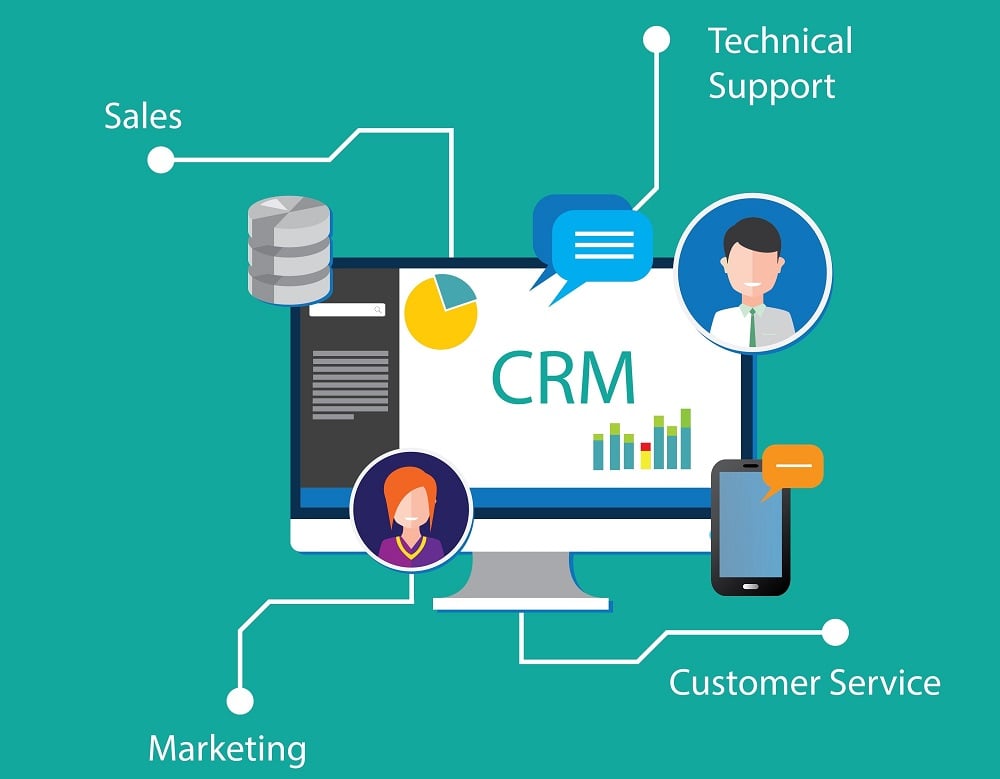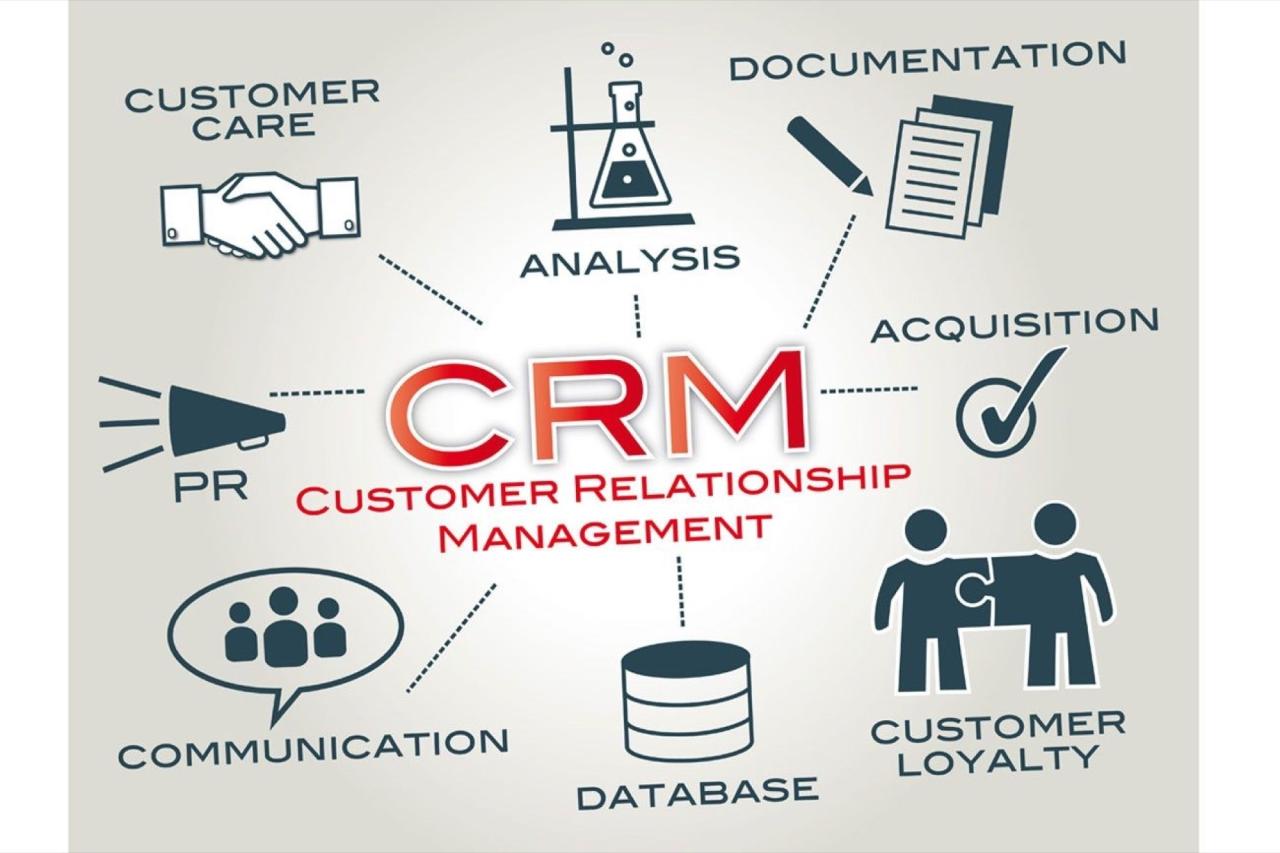Imagine having a dedicated assistant who operates tirelessly, meticulously tracking every interaction with your clients, and even anticipating your next business move. This is the transformative power of Customer Relationship Management (CRM) systems combined with automation tools.
In the current business landscape, organizations are relentlessly seeking methods to optimize their operations and amplify productivity. This is particularly true in the dynamic realm of sales, where every second counts, and each lead holds significant value.
The pressing question for many businesses is: What exactly is a CRM, and how can automation tools elevate sales efficiency while maintaining a competitive edge? In this comprehensive guide, we will explore the intricacies of CRM systems, delve into the capabilities of automation tools, and illustrate how their synergy can propel your sales performance to new heights.
Understanding CRM Systems
At its core, Customer Relationship Management (CRM) is a technology solution designed to help businesses manage and analyze customer interactions and data throughout the customer lifecycle. According to Forbes, CRM solutions empower businesses to store extensive customer information, which can be leveraged for insightful analysis, automation of marketing and sales processes, forecasting future sales trends, and much more.
The Role of CRM in Sales Operations
CRM systems function as the nerve center of your sales operations. They facilitate the management and analysis of customer interactions across various touchpoints, aiming to enhance customer service relationships, foster customer retention, and drive sales growth.
With a robust CRM in place, you can meticulously track every interaction with a customer—be it emails, phone calls, meetings, or even social media engagements. This centralized repository of information allows you to effortlessly access customer history, thereby gaining a deeper understanding of their needs and preferences.
Popular CRM Platforms
Prominent CRM platforms such as Salesforce, HubSpot, and Zoho CRM offer a plethora of features tailored to meet diverse business requirements. These platforms not only help in organizing customer data but also provide tools for communication, collaboration, and analytics, thereby streamlining your sales processes.
Salesforce
Salesforce is renowned for its comprehensive features and scalability, making it a popular choice for businesses of all sizes. It offers advanced analytics, customizable dashboards, and extensive integration capabilities with other business tools.
HubSpot
HubSpot CRM is celebrated for its user-friendly interface and robust marketing automation features. It provides seamless integration with HubSpot’s marketing, sales, and service hubs, making it ideal for businesses looking to unify their customer-facing operations.
Dazo CRM
Dazo CRM stands out for its affordability and flexibility. It offers a wide range of customization options, allowing businesses to tailor the system to their specific needs without breaking the bank.
Enhancing Customer Segmentation and Targeting
CRM systems are instrumental in segmenting your customer base, allowing for targeted marketing and personalized customer experiences. By categorizing customers based on various criteria—such as demographics, purchasing behavior, and interaction history—you can tailor your sales strategies to resonate more effectively with different segments.
Facilitating Team Collaboration
CRM systems play a pivotal role in enhancing communication within your sales team. By providing a unified view of customer data, team members can collaborate more efficiently, ensuring that no customer is overlooked and that every interaction is consistent and informed.
Integration with Other Business Tools
Additionally, CRM systems integrate seamlessly with other business tools, such as email marketing platforms, social media management tools, and analytics software. This integration capability ensures that data flows smoothly between different systems, providing a holistic view of your business operations and customer interactions.
In summary, CRM systems are indispensable tools for modern businesses, offering comprehensive solutions for managing customer relationships, improving service quality, and driving sales growth.
The Role of Automation Tools
While CRM systems lay the foundation for effective customer management, automation tools enhance these capabilities by handling repetitive tasks, thereby freeing up valuable time for your sales team to focus on more strategic activities such as closing deals and building meaningful relationships with clients.
Key Functions of Automation Tools
Automation tools encompass a wide range of functionalities, from automating email campaigns and follow-up reminders to managing task lists and generating sales reports. These tools streamline various aspects of the sales process, ensuring that routine tasks are executed efficiently and consistently.
Reducing Manual Data Entry
One of the primary benefits of automation tools is their ability to reduce manual data entry. By automating the capture and organization of leads from multiple sources—such as website forms, social media platforms, and email campaigns—automation tools ensure that your CRM is always up-to-date with the latest information. This not only saves time but also minimizes the risk of errors associated with manual data entry.
Lead Assignment and Management
Automation tools facilitate the seamless assignment of leads to the appropriate sales representatives based on predefined criteria such as geography, industry, or lead score. This ensures that leads are promptly and accurately handled by the right team members, increasing the likelihood of successful conversions.
Follow-Up Reminders
Timely follow-ups are crucial in the sales process. However, keeping track of follow-up schedules can be challenging, especially when managing a large number of leads. Automation tools can set up automated reminders for follow-ups, ensuring that no potential deal is overlooked.
For example, if a sales representative has a scheduled call with a prospect, the automation tool can send a reminder a few hours before the call. Similarly, after a meeting, an automated follow-up email can be sent to the prospect, thanking them for their time and reiterating key points discussed. These automated reminders help maintain consistent communication with prospects, fostering stronger relationships and improving conversion rates.
Enhancing Email Marketing
Email marketing remains one of the most effective channels for engaging with prospects and customers. Automation tools enhance email campaigns by enabling segmentation, personalization, and tracking.
With automation, you can segment your contact list based on various criteria such as demographics, purchase history, and engagement levels. This allows you to send targeted email campaigns that are more likely to resonate with each segment.
Automation tools also enable the personalization of emails, ensuring that each recipient receives a message tailored to their specific needs and interests. Personalized emails have higher open and click-through rates, leading to better engagement and increased sales opportunities.
Moreover, automation tools track the performance of your email campaigns by monitoring metrics such as open rates, click-through rates, and conversions. This data is then integrated into your CRM, providing valuable insights into the effectiveness of your campaigns and helping you optimize future strategies.
Sales Forecasting
Accurate sales forecasting is essential for strategic planning and decision-making. CRM systems, when combined with automation tools, provide robust sales forecasting capabilities by analyzing historical data and identifying patterns and trends.
Automation tools can process large volumes of sales data to generate accurate forecasts, helping you predict future sales performance. These forecasts enable better decision-making regarding inventory management, marketing strategies, and resource allocation, ensuring that your business is well-prepared to meet future demands.
Task Management
Effective task management is vital for maintaining productivity and ensuring that no important tasks are overlooked. Automation tools streamline task management by creating and assigning tasks based on customer interactions and predefined criteria.
For instance, if a prospect interacts with your email by clicking a link or visiting a specific page on your website, the automation tool can automatically generate a task for a sales representative to follow up with a call or send additional information. This ensures that all interactions are promptly addressed, enhancing customer engagement and increasing the likelihood of conversion.
Enhancing Sales Reporting and Analytics
Automation tools also play a significant role in sales reporting and analytics. By automating the collection and analysis of sales data, these tools provide real-time insights into sales performance, enabling businesses to make data-driven decisions.
For example, automation tools can generate detailed reports on sales activities, lead conversion rates, and revenue growth. These reports help sales managers identify trends, evaluate the effectiveness of sales strategies, and make informed decisions to improve performance.
Streamlining Customer Support
In addition to sales, automation tools can also enhance customer support operations. By automating responses to common customer inquiries and issues, businesses can provide timely and efficient support, improving customer satisfaction and loyalty.
For instance, automation tools can be programmed to send automated responses to frequently asked questions, guide customers through troubleshooting steps, or escalate complex issues to the appropriate support team members. This ensures that customers receive prompt and accurate assistance, enhancing their overall experience with your business.
The Dynamic Duo: CRM and Automation

When CRM systems and automation tools are integrated, they form a powerful combination that can significantly elevate your sales efficiency and effectiveness. The synergy between these two technologies creates a streamlined, data-driven sales process that maximizes productivity and drives growth. Let’s explore how this dynamic duo works together to enhance your sales operations:
A. Lead Management
One of the most time-consuming aspects of sales is managing leads. Traditionally, this involved manual data entry, lead assignment, and tracking, which was not only labor-intensive but also prone to errors and delays. With the integration of CRM and automation tools, lead management becomes seamless and efficient.
Automation tools can automatically capture leads from various sources such as website forms, social media platforms, and email campaigns, and then feed them directly into your CRM system. This eliminates the need for manual data entry, saving time and reducing the risk of errors.
Once the leads are in the CRM, automation tools can assign them to the appropriate sales representatives based on predefined criteria such as lead score, geographic location, or product interest. This ensures that leads are promptly and accurately handled by the right team members, increasing the likelihood of successful conversions.
B. Follow-Up Reminders
Timely follow-ups are crucial in the sales process. However, keeping track of follow-up schedules can be challenging, especially when managing a large number of leads. Automation tools can set up automated reminders for follow-ups, ensuring that no potential deal is overlooked.
For example, if a sales representative has a scheduled call with a prospect, the automation tool can send a reminder a few hours before the call. Similarly, after a meeting, an automated follow-up email can be sent to the prospect, thanking them for their time and reiterating key points discussed. These automated reminders help maintain consistent communication with prospects, fostering stronger relationships and improving conversion rates.
C. Email Campaigns
Email marketing remains one of the most effective channels for engaging with prospects and customers. Automation tools enhance email campaigns by enabling segmentation, personalization, and tracking.
With automation, you can segment your contact list based on various criteria such as demographics, purchase history, and engagement levels. This allows you to send targeted email campaigns that are more likely to resonate with each segment.
Automation tools also enable the personalization of emails, ensuring that each recipient receives a message tailored to their specific needs and interests. Personalized emails have higher open and click-through rates, leading to better engagement and increased sales opportunities.
Moreover, automation tools track the performance of your email campaigns by monitoring metrics such as open rates, click-through rates, and conversions. This data is then integrated into your CRM, providing valuable insights into the effectiveness of your campaigns and helping you optimize future strategies.
D. Sales Forecasting
Accurate sales forecasting is essential for strategic planning and decision-making. CRM systems, when combined with automation tools, provide robust sales forecasting capabilities by analyzing historical data and identifying patterns and trends.
Automation tools can process large volumes of sales data to generate accurate forecasts, helping you predict future sales performance. These forecasts enable better decision-making regarding inventory management, marketing strategies, and resource allocation, ensuring that your business is well-prepared to meet future demands.
E. Task Management
Effective task management is vital for maintaining productivity and ensuring that no important tasks are overlooked. Automation tools streamline task management by creating and assigning tasks based on customer interactions and predefined criteria.
For instance, if a prospect interacts with your email by clicking a link or visiting a specific page on your website, the automation tool can automatically generate a task for a sales representative to follow up with a call or send additional information. This ensures that all interactions are promptly addressed, enhancing customer engagement and increasing the likelihood of conversion.
F. Enhanced Reporting and Analytics
Integrating CRM with automation tools provides comprehensive reporting and analytics capabilities. These tools can generate detailed reports on sales activities, lead conversions, and revenue growth, offering valuable insights into your sales performance.
By analyzing this data, businesses can identify trends, evaluate the effectiveness of sales strategies, and make informed decisions to optimize their sales processes. Enhanced reporting also facilitates better forecasting and strategic planning, ensuring that your business is always one step ahead.
G. Improved Customer Experience
The combined power of CRM and automation tools creates a more accurate, organized, and efficient sales process. By automating routine tasks and providing comprehensive insights into customer interactions, these technologies enable your sales team to focus on what they do best—selling and building relationships.
Personalized and timely interactions, made possible by CRM and automation, lead to higher levels of customer satisfaction. Satisfied customers are more likely to become repeat buyers and refer your business to others, contributing to long-term growth.
H. Scalability
As your business grows, managing customer interactions and sales processes manually becomes increasingly challenging. CRM and automation tools provide scalable solutions that can handle growing volumes of data and interactions without compromising efficiency. This scalability ensures that your business can continue to grow seamlessly, maintaining high levels of productivity and customer satisfaction.
The Benefits of Integrating CRM and Automation
Integrating CRM systems with automation tools offers a multitude of benefits that can transform your sales operations and drive significant business growth. Let’s delve into the key advantages:

1. Enhanced Efficiency and Productivity
By automating repetitive tasks such as data entry, lead assignment, and follow-up reminders, your sales team can focus more on strategic activities like engaging with clients and closing deals. This increased efficiency leads to higher productivity and better use of your team’s time and resources.
2. Improved Data Accuracy and Management
Automation reduces the risk of human error in data entry and ensures that your CRM is consistently updated with accurate information. This leads to better data management, allowing for more reliable insights and decision-making.
3. Better Customer Insights
With CRM and automation tools, you have access to a wealth of customer data that can be analyzed to gain deeper insights into customer behavior and preferences. These insights enable you to tailor your sales and marketing strategies to better meet the needs of your customers.
4. Increased Sales Conversion Rates
The streamlined sales process facilitated by CRM and automation tools leads to faster response times and more personalized interactions with prospects. This enhanced engagement increases the likelihood of converting leads into customers, thereby boosting sales conversion rates.
5. Enhanced Customer Satisfaction and Loyalty
Personalized and timely interactions, made possible by CRM and automation, lead to higher levels of customer satisfaction. Satisfied customers are more likely to become repeat buyers and refer your business to others, contributing to long-term growth.
6. Scalability
As your business grows, managing customer interactions and sales processes manually becomes increasingly challenging. CRM and automation tools provide scalable solutions that can handle growing volumes of data and interactions without compromising efficiency.
7. Comprehensive Reporting and Analytics
CRM systems integrated with automation tools offer robust reporting and analytics capabilities. These features provide valuable insights into sales performance, customer behavior, and campaign effectiveness, enabling you to make data-driven decisions that drive business growth.
Implementing CRM and Automation: Best Practices
To fully leverage the benefits of CRM and automation tools, it’s essential to implement them effectively. Here are some best practices to ensure successful implementation:
A. Define Clear Objectives
Before implementing CRM and automation tools, clearly define your business objectives. Identify what you aim to achieve, whether it’s increasing sales, improving customer service, or enhancing data management. Clear objectives will guide your selection of the right tools and inform your implementation strategy.
B. Choose the Right CRM and Automation Tools
Select CRM and automation tools that align with your business needs and objectives. Consider factors such as ease of use, scalability, integration capabilities, and the specific features offered. Popular CRM platforms like Salesforce, HubSpot, and Zoho CRM each offer unique features, so choose one that best fits your business requirements.
C. Train Your Team
Ensure that your sales team is adequately trained to use the CRM and automation tools. Provide comprehensive training sessions and ongoing support to help them understand the functionalities and benefits of the tools. A well-trained team is crucial for maximizing the potential of CRM and automation.
D. Integrate with Existing Systems
Integrate your CRM and automation tools with your existing business systems, such as email marketing platforms, social media management tools, and analytics software. Seamless integration ensures that data flows smoothly between different systems, providing a unified view of your business operations and customer interactions.
E. Maintain Data Quality
Regularly update and clean your CRM data to maintain its accuracy and relevance. Implement data validation rules and conduct periodic audits to ensure that your data remains accurate and up-to-date. High-quality data is essential for generating reliable insights and making informed decisions.
F. Monitor and Optimize
Continuously monitor the performance of your CRM and automation tools. Use the reporting and analytics features to track key metrics and identify areas for improvement. Regularly optimize your strategies based on the insights gained to enhance the effectiveness of your sales processes.
G. Encourage Collaboration
Promote collaboration within your sales team by using the collaborative features of your CRM and automation tools. Encourage team members to share information, communicate effectively, and work together to achieve common goals. Collaboration enhances the overall efficiency and effectiveness of your sales operations.
Case Studies: Success Stories with CRM and Automation
To illustrate the transformative impact of CRM and automation tools, let’s examine a couple of real-world examples of businesses that have successfully leveraged these technologies to boost their sales.
Case Study 1: XYZ Tech Solutions
XYZ Tech Solutions, a mid-sized technology company, was struggling with managing its growing customer base and increasing sales leads. The manual processes were leading to missed opportunities and inefficiencies in lead management. To address these challenges, XYZ Tech Solutions implemented Salesforce as their CRM system and integrated it with their email marketing automation tool.
Results:
- Lead Conversion Rate Increased by 35%
- Sales Cycle Reduced by 20%
- Customer Satisfaction Scores Improved by 15%
By automating lead capture and assignment, XYZ Tech Solutions ensured that no leads were overlooked and that each lead was handled by the most suitable sales representative. The integration with email marketing allowed for personalized and targeted campaigns, enhancing engagement and conversion rates. The comprehensive analytics provided insights into sales performance, enabling data-driven decision-making and strategic planning.
Case Study 2: ABC Retailers
ABC Retailers, a large retail chain, faced challenges in maintaining consistent communication with customers and managing their extensive inventory. They decided to implement HubSpot CRM along with their automation tools to streamline their operations.
Results:
- Sales Revenue Increased by 25%
- Inventory Management Efficiency Improved by 30%
- Repeat Customer Rate Increased by 40%
The automation tools facilitated automated follow-ups and personalized email campaigns, resulting in higher customer engagement and repeat purchases. The CRM system provided a unified view of customer interactions, enabling better service and support. The integration with inventory management systems ensured that stock levels were optimized, reducing the risk of overstocking or stockouts.
Conclusion
In an increasingly competitive business environment, leveraging advanced technologies like CRM systems and automation tools is no longer a luxury but a necessity. These technologies empower businesses to streamline their sales processes, enhance customer relationships, and drive significant growth.
By implementing a robust CRM system, you gain comprehensive control over your customer interactions and data. When combined with automation tools, the efficiency and effectiveness of your sales operations are amplified, leading to increased sales, improved customer satisfaction, and sustained business success.
To maximize the benefits of CRM and automation, it’s essential to choose the right tools, train your team, and continuously monitor and optimize your strategies. By doing so, you can create a powerful, data-driven sales engine that propels your business to new heights of success.












